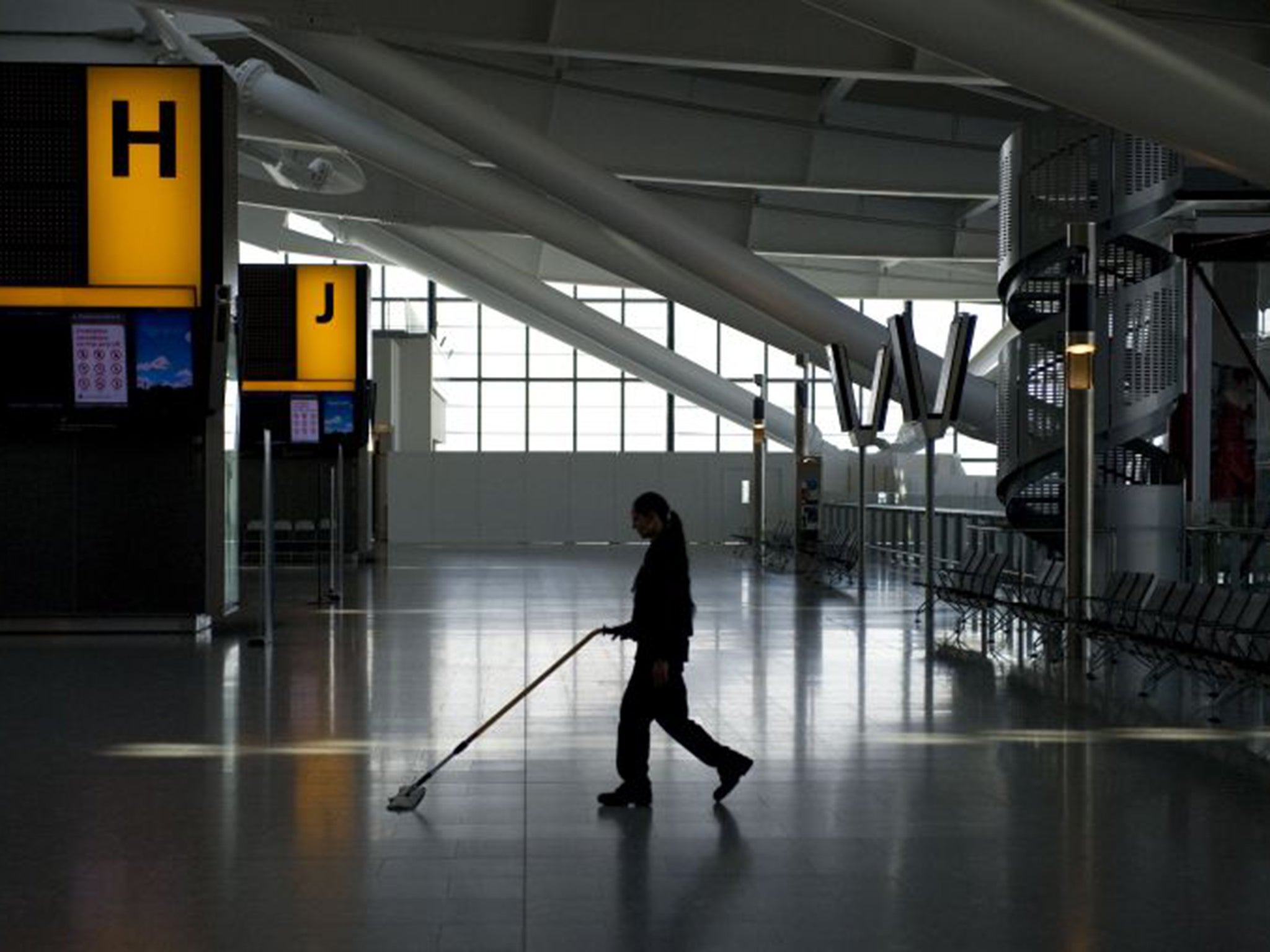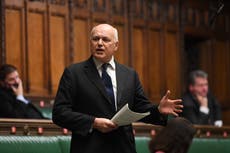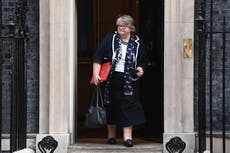‘Can’t afford to hop on the bus’: Women to be ‘hit hardest’ by Universal Credit cut
Exclusive: ‘Anxiety levels have shot up. People are feeling really desperate,’ says campaigner

Cuts to Universal Credit will hit women hardest and lead to them losing billions of pounds from their annual incomes in total, figures show.
The government increased Universal Credit by £20 per week during the pandemic, to help families struggling in the wake of the economic fallout, but the uplift will be axed by October.
Some 5.9 million people in the UK are currently receiving Universal Credit – with women making up 54 per cent of those claiming the benefit payments as of August.
Exclusive data from a leading debt advice charity, seen by The Independent, shows a third of new people seeking help in July were on Universal Credit – with women making up around seven in 10 of them.
StepChange said just over six in 10 women who claim Universal Credit who accessed their debt advice service have a monthly income which is greater than their monthly expenditure.
But with the £20 uplift set to be scrapped, only three in 10 women who claim Universal Credit will be in a situation where their monthly income is higher than their monthly spending.
Carly Newman, who has been on Universal Credit for two-and-a half years, told The Independent she is anxious about the prospect of the uplift being axed.
The mother of one, who works at the Citizens Advice Bureau’s head office, added: “I didn’t even notice it as additional income. When they first gave it to us, it wasn’t a bonus.
“Universal Credit was never enough in the first place. But eyes were on Universal Credit because middle class people were suddenly claiming it.”
The single parent, who has a three-year-old son, explained she generally lives “pay day to pay day”. She said she has no time to take on extra work and would struggle to afford the childcare costs that doing additional hours would necessitate.
“Cuts to Universal Credit are an added burden, an added worry, added stress on top of everything else. What happens if I don’t find this money?”
Single parents made up 22 per cent of those who sought help from StepChange last year – far higher than the proportion of lone parents in the wider population, with single parents accounting for six per cent of UK households.
Some 90 per cent of single parents are women – with women being six times more likely to be lone parents than men.
Ms Newman, who lives in southeast London, said: “My rent has gone up. My nursery fees are going up, fuel is going up in price. My energy bills are increasing. The reality is, how does someone in my position find a spare £80 a month?
“When I have to buy a winter coat, new clothes for my son, a big shop, I’ll probably just put it on my credit card, as it feels more secure than using the last bit of money before I get paid.
“Cuts to Universal Credit are an added burden, an added worry, added stress on top of everything else. What happens if I don’t find this money?”
Figures from Gingerbread, the single parent charity, show a quarter of calls to their helpline since April have been about Universal Credit. When the uplift is scrapped, 1.1 million eligible single parent families will be affected, losing a total of more than £1bn over the next year.
Six in 10 single-parent families will suffer the sudden cut to their incomes when the uplift is axed, and a quarter of all Universal Credit claimants are single parents.
Victoria Benson, chief executive of Gingerbread, told The Independent: “£20 a week doesn’t seem very much to most people but £86 a month to single parents is a lot. They haven’t been using it for luxuries. They’ve been using it to feed their children.”
Ms Benson, who is a single mother herself, said removing the uplift is equivalent to taking away money for a week or even two weeks’ groceries.
“People are going to have to go food banks, people will be worrying about turning on their heating, people won’t be able to afford new clothes or a winter coat,” she added. “A woman told me she can’t afford to pay for toddler classes and she can’t even afford to hop on the bus to the park.”
Ms Benson said it is particularly concerning that the cut to Universal Credit is coinciding with a rise in food and fuel prices as well as furlough coming to an end, adding that single parents have been disproportionately furloughed. It also clashes with the end of the government’s test and trace self-isolation grant and the self-employment income support scheme.
“It is a perfect storm,” said Ms Benson. “Anxiety levels have shot up. People are feeling really desperate. The thing they worry about most is looking after their children. Helpline staff have found it really hard. They’ve heard really harrowing stories.”
Campaigners told The Independent women outnumber men as Universal Credit recipients as they are more likely to be the main carers of children and other family members.
More women than men have claimed Universal Credit since June 2018 when the benefit was extended to include individuals who had been in receipt of the Child Tax Credit, generally claimed by women.
One woman from Lincoln, who did not wish to be named, said she fears she will struggle to afford food, bills, and everything she needs “on a daily basis to survive” after losing the £20 uplift each week.
She told The Independent: “I spoke to a Conservative MP this week, and asked, ‘What would you do if you lost six per cent of your earnings every month?”
The woman, who is involved with Young Women’s Trust, a charity which helps women on low or no pay, was posing the question to Will Quince, who was in a junior role in the Department for Work and Pensions.
“There have been clear winners and losers from the pandemic, with single parents, who are also disproportionately female, being one of the groups hardest hit.”
She added: “The extra £20 has been such a lifeline. It helped us pay a little bit extra on our rent so we don’t fall behind. Once that money goes it will be quite a struggle. What are we going to have to go without?”
The woman, who has been on Universal Credit since 2018, said the prospect of having her income is “terrifying”.
“I can’t think about what it is going to be like,” she added. “It is affecting my sleeping. It is something I am thinking about all the time. It really is disheartening.”
The uplift had been scheduled to come to an end in March before chancellor Rishi Sunak bowed to pressure to extend it for a further six months. Campaigners, Labour politicians, and a growing number of Conservative MPs are now urging him to extend it again.
Citizen’s Advice estimates the cut could drive around 2.3 million people into debt.
The overall number of people claiming Universal Credit has almost doubled since the pandemic hit. Some 40 per cent of claimants are in work, with the benefit supplementing the money they receive from their employer.
Sue Anderson, of StepChange, said: “We already know there have been clear winners and losers from the pandemic, with single parents, who are also disproportionately female, being one of the groups hardest hit.”
Women are overrepresented in low-paid, precarious work with zero-hours contracts. Research by think tank Autonomy found some 98 per cent of workers who take home poverty wages in high-coronavirus exposure jobs are women.
A government spokesperson told The Independent the uplift to Universal Credit was “always temporary”. The representative for the Department of Work and Pensions added: “It was designed to help claimants through the economic shock and financial disruption of the toughest stages of the pandemic, and it has done so.”
The spokesperson said Universal Credit would keep delivering “vital support” for people in and out of employment.
But Steve Turner, assistant general secretary of Unite, said: “The chancellor is making a deliberate and cruel decision to punish the country’s working poor, pushing six million people, over a third of which are already in work, into poverty and debt overnight.
“Many of them have worked right through the pandemic – in social care, in the NHS and as refuse collectors – and they deserve so much better from this government than this assault on their already poverty-level incomes.”
Join our commenting forum
Join thought-provoking conversations, follow other Independent readers and see their replies
Comments








Bookmark popover
Removed from bookmarks